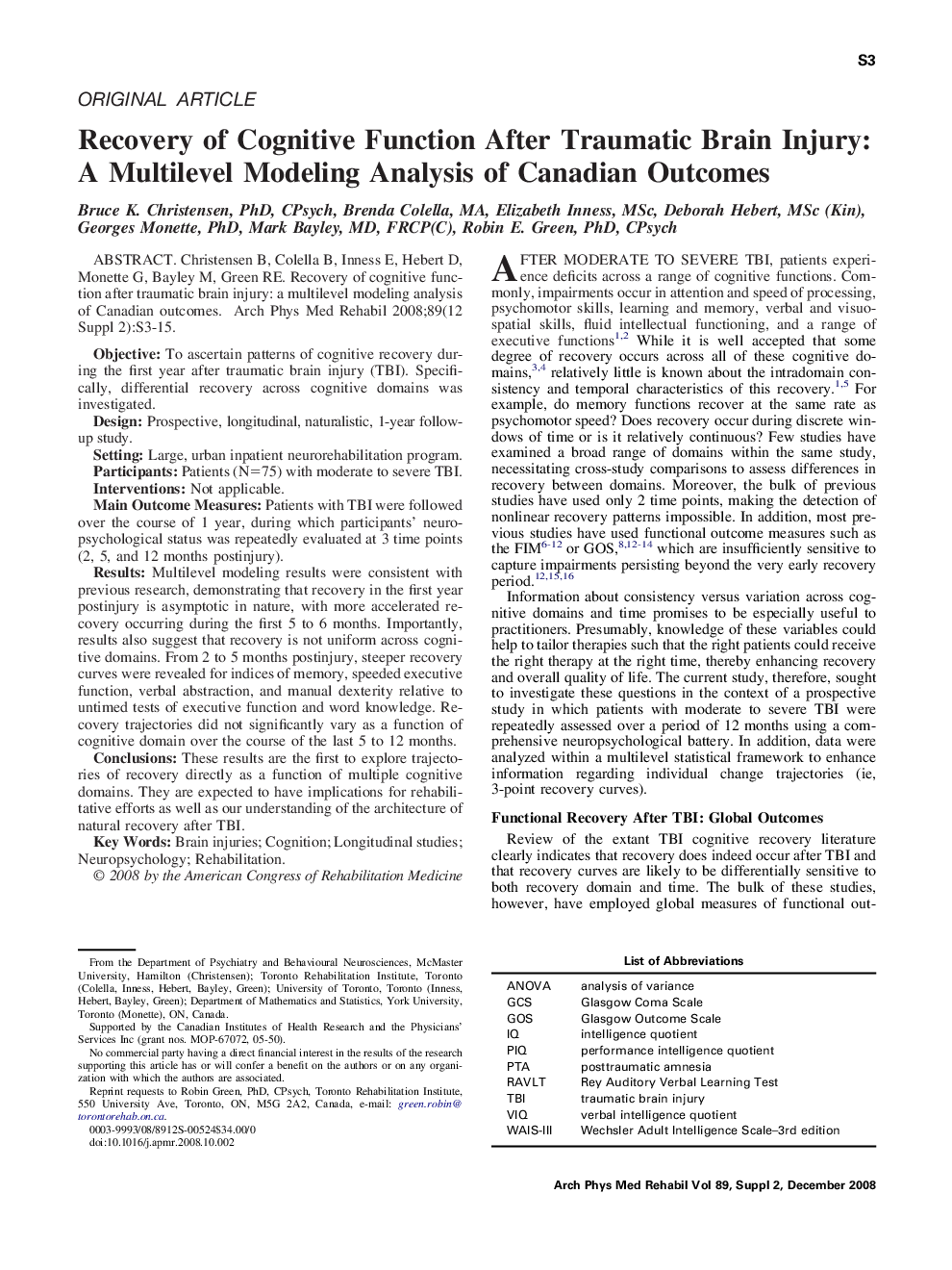| Article ID | Journal | Published Year | Pages | File Type |
|---|---|---|---|---|
| 3451598 | Archives of Physical Medicine and Rehabilitation | 2008 | 13 Pages |
Christensen B, Colella B, Inness E, Hebert D, Monette G, Bayley M, Green RE. Recovery of cognitive function after traumatic brain injury: a multilevel modeling analysis of Canadian outcomes.ObjectiveTo ascertain patterns of cognitive recovery during the first year after traumatic brain injury (TBI). Specifically, differential recovery across cognitive domains was investigated.DesignProspective, longitudinal, naturalistic, 1-year follow-up study.SettingLarge, urban inpatient neurorehabilitation program.ParticipantsPatients (N=75) with moderate to severe TBI.InterventionsNot applicable.Main Outcome MeasuresPatients with TBI were followed over the course of 1 year, during which participants' neuropsychological status was repeatedly evaluated at 3 time points (2, 5, and 12 months postinjury).ResultsMultilevel modeling results were consistent with previous research, demonstrating that recovery in the first year postinjury is asymptotic in nature, with more accelerated recovery occurring during the first 5 to 6 months. Importantly, results also suggest that recovery is not uniform across cognitive domains. From 2 to 5 months postinjury, steeper recovery curves were revealed for indices of memory, speeded executive function, verbal abstraction, and manual dexterity relative to untimed tests of executive function and word knowledge. Recovery trajectories did not significantly vary as a function of cognitive domain over the course of the last 5 to 12 months.ConclusionsThese results are the first to explore trajectories of recovery directly as a function of multiple cognitive domains. They are expected to have implications for rehabilitative efforts as well as our understanding of the architecture of natural recovery after TBI.
